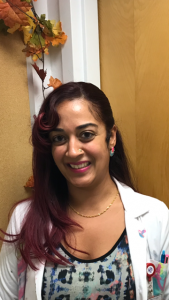Many people associate Alzheimer’s disease with older adults that are advanced in age. However, the disease can also affect people who are younger than the age of 65. When this happens, the disease is referred to as younger-onset or early onset Alzheimer’s.
Early-onset Alzheimer’s has been found to mostly affect people in their forties and fifties. Currently, experts are unsure why some people get the disease at an earlier age than others. Research does point to genetics as a contributing factor in some cases.
The symptoms and signs of early-onset Alzheimer’s may differ with each person and can include:
- Personality or mood changes
- Difficulty making decisions
- Misplacing items on a regular basis
- Frequently withdrawing from social situations
- Difficulty finding the right words for specific items
- Difficulty finishing a sentence
- Losing track of locations, dates or times
- Asking for the same information again and again
- Difficulty learning new things
If you are experiencing symptoms or displaying signs of the disease on an ongoing basis, it is recommended that you consult a physician who specializes in treating Alzheimer’s. In order to diagnose the disease, the physician may complete a comprehensive medical evaluation which can include cognitive tests, brain imaging, neurological and medical exams.
Early detection of Alzheimer’s disease can maximize the benefits received from treatment and may help you to maintain your independence longer. Therefore, it is highly advised that you seek the assistance of a specialist immediately.
All content of this newsletter is intended for general information purposes only and is not intended or implied to be a substitute for professional medical advice, diagnosis or treatment. Please consult a medical professional before adopting any of the suggestions on this page. You must never disregard professional medical advice or delay seeking medical treatment based upon any content of this newsletter. PROMPTLY CONSULT YOUR PHYSICIAN OR CALL 911 IF YOU BELIEVE YOU HAVE A MEDICAL EMERGENCY.

 Receding gums, also known as gingivitis, is a condition where the gum tissue pulls back from the bottom of the teeth, exposing more of the tooth’s root. It may take a long period of time for receding gums to become noticeable and at first, it may not cause any discomfort. If it is left untreated it can cause tooth decay and eventual loss of a tooth or teeth.
Receding gums, also known as gingivitis, is a condition where the gum tissue pulls back from the bottom of the teeth, exposing more of the tooth’s root. It may take a long period of time for receding gums to become noticeable and at first, it may not cause any discomfort. If it is left untreated it can cause tooth decay and eventual loss of a tooth or teeth.